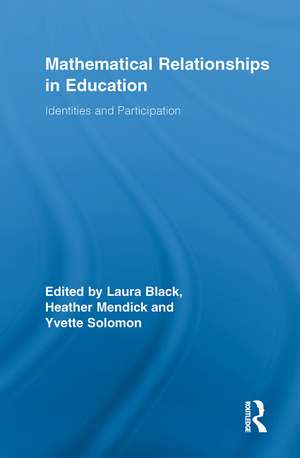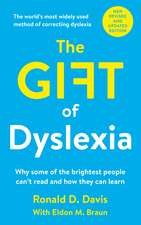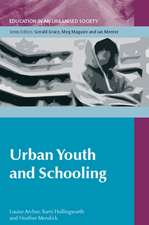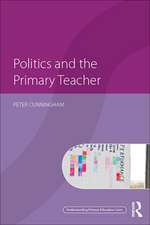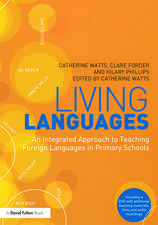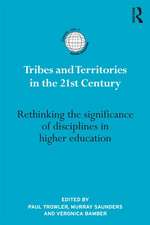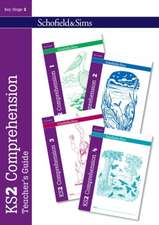Mathematical Relationships in Education: Identities and Participation: Routledge Research in Education
Editat de Laura Black, Heather Mendick, Yvette Solomonen Limba Engleză Paperback – 27 iul 2012
| Toate formatele și edițiile | Preț | Express |
|---|---|---|
| Paperback (1) | 478.33 lei 6-8 săpt. | |
| Taylor & Francis – 27 iul 2012 | 478.33 lei 6-8 săpt. | |
| Hardback (1) | 1056.32 lei 6-8 săpt. | |
| Taylor & Francis – 5 iun 2009 | 1056.32 lei 6-8 săpt. |
Din seria Routledge Research in Education
-
 Preț: 310.29 lei
Preț: 310.29 lei -
 Preț: 304.19 lei
Preț: 304.19 lei -
 Preț: 303.18 lei
Preț: 303.18 lei -
 Preț: 147.15 lei
Preț: 147.15 lei -
 Preț: 276.13 lei
Preț: 276.13 lei -
 Preț: 302.17 lei
Preț: 302.17 lei -
 Preț: 303.75 lei
Preț: 303.75 lei -
 Preț: 290.73 lei
Preț: 290.73 lei -
 Preț: 310.31 lei
Preț: 310.31 lei - 8%
 Preț: 381.60 lei
Preț: 381.60 lei -
 Preț: 304.83 lei
Preț: 304.83 lei -
 Preț: 377.85 lei
Preț: 377.85 lei -
 Preț: 401.01 lei
Preț: 401.01 lei -
 Preț: 310.65 lei
Preț: 310.65 lei -
 Preț: 303.89 lei
Preț: 303.89 lei -
 Preț: 129.83 lei
Preț: 129.83 lei -
 Preț: 310.08 lei
Preț: 310.08 lei -
 Preț: 310.22 lei
Preț: 310.22 lei -
 Preț: 294.39 lei
Preț: 294.39 lei - 8%
 Preț: 381.99 lei
Preț: 381.99 lei - 9%
 Preț: 867.43 lei
Preț: 867.43 lei - 9%
 Preț: 1003.95 lei
Preț: 1003.95 lei -
 Preț: 303.89 lei
Preț: 303.89 lei -
 Preț: 358.67 lei
Preț: 358.67 lei - 8%
 Preț: 389.47 lei
Preț: 389.47 lei - 18%
 Preț: 1060.52 lei
Preț: 1060.52 lei - 18%
 Preț: 1116.74 lei
Preț: 1116.74 lei -
 Preț: 397.75 lei
Preț: 397.75 lei - 18%
 Preț: 1221.80 lei
Preț: 1221.80 lei - 18%
 Preț: 1110.74 lei
Preț: 1110.74 lei - 18%
 Preț: 1053.92 lei
Preț: 1053.92 lei - 18%
 Preț: 1162.84 lei
Preț: 1162.84 lei - 18%
 Preț: 1063.65 lei
Preț: 1063.65 lei - 28%
 Preț: 851.82 lei
Preț: 851.82 lei - 18%
 Preț: 1054.75 lei
Preț: 1054.75 lei - 18%
 Preț: 1054.58 lei
Preț: 1054.58 lei - 18%
 Preț: 1178.85 lei
Preț: 1178.85 lei - 18%
 Preț: 1111.72 lei
Preț: 1111.72 lei - 18%
 Preț: 1057.75 lei
Preț: 1057.75 lei -
 Preț: 489.03 lei
Preț: 489.03 lei - 18%
 Preț: 1059.14 lei
Preț: 1059.14 lei - 18%
 Preț: 1050.09 lei
Preț: 1050.09 lei - 18%
 Preț: 1060.52 lei
Preț: 1060.52 lei - 18%
 Preț: 1062.98 lei
Preț: 1062.98 lei - 18%
 Preț: 1056.28 lei
Preț: 1056.28 lei - 18%
 Preț: 1217.63 lei
Preț: 1217.63 lei - 18%
 Preț: 1060.19 lei
Preț: 1060.19 lei - 18%
 Preț: 1170.84 lei
Preț: 1170.84 lei - 18%
 Preț: 1167.36 lei
Preț: 1167.36 lei
Preț: 478.33 lei
Nou
Puncte Express: 717
Preț estimativ în valută:
91.54€ • 99.40$ • 76.89£
91.54€ • 99.40$ • 76.89£
Carte tipărită la comandă
Livrare economică 22 aprilie-06 mai
Preluare comenzi: 021 569.72.76
Specificații
ISBN-13: 9780415649957
ISBN-10: 0415649951
Pagini: 266
Ilustrații: 8 b/w images, 2 tables, 2 halftones and 6 line drawings
Dimensiuni: 152 x 229 x 14 mm
Greutate: 0.36 kg
Ediția:1
Editura: Taylor & Francis
Colecția Routledge
Seria Routledge Research in Education
Locul publicării:Oxford, United Kingdom
ISBN-10: 0415649951
Pagini: 266
Ilustrații: 8 b/w images, 2 tables, 2 halftones and 6 line drawings
Dimensiuni: 152 x 229 x 14 mm
Greutate: 0.36 kg
Ediția:1
Editura: Taylor & Francis
Colecția Routledge
Seria Routledge Research in Education
Locul publicării:Oxford, United Kingdom
Cuprins
1. Introduction Part 1: Selection and Assessment 2. Disabling Numbers: On the Secret Charm of Numberese and Why It Should Be Resisted Anna Sfard 3. Pain, Pleasure and Power: Selecting and Assessing Defended Subjects Laura Black, Heather Mendick, Melissa Rodd and Yvette Solomon with Margaret Brown 4. Mathematical ‘Ability’ and Identity: A Socio-Cultural Perspective on Assessment and Selection Jeremy Hodgen and Rachel Marks Part 2: Choice 5. Telling Stories about Mathematics Mark Boylan and Hilary Povey 6. Choice: Parents, Teachers, Children and Ability Grouping in Mathematics Peter Winbourne 7. Special Cases: Neoliberalism, Choice and Mathematics Heather Mendick, Marie-Pierre Moreau and Debbie Epstein Part 3: Curriculum 8. Appetite and Anxiety: The Mathematics Curriculum and its Hidden Meanings Jenny Shaw 9. Questioning the Mathematics Curriculum: A Discursive Approach Candia Morgan 10. The Role of Textbooks in the ‘Figured Worlds’ of English, French and German Classrooms – A Comparative Perspective Birgit Pepin Part 4: Pedagogy 11. How Do Pedagogic Practices Impact on Learner Identities in Mathematics? A Psychoanalytically Framed Response Tamara Bibby 12. Hybridity of Maths and Peer Talk: Crazy Maths Pauline Davis and Julian Williams 13. Pedagogy, Discourse and Identity Stephen Lerman Part 5: Teacher Development 14. Mathematics For Teaching: What Makes Us Want To? Pat Drake 15. Developing Mathematics Teaching Through Collaborative Inquiry Barbara Jaworski 16. What Does a Discourse Oriented Examination Have To Offer Teacher Development? The Problem with Primary Mathematics Teachers Tansy Hardy Part 6: Endings 17. Identity in Mathematics: Perspectives on Identity, Relationships and Participation Patricia George 18. Participating in Identities and Relationships in Mathematics Education. Paola Valero. Contributors. References. Index.
Recenzii
"The book represents an impressive attempt to get to the heart of mathematical relationships. The chapters are very much grounded in the realities of everyday concerns within mathematics education: selection and assessment; pedagogy; curriculum; choice; teacher development. Importantly, the authors avoid a sensationalized treatment of the issues under interrogation. In addition, they neither propose a highly theoretical nor an exclusively practical methods approach. Rather, the book constructs a dialogue between theory and empirical evidence across three theoretical lenses (sociocultural, discursive, and psychoanalytic), exposing the tensions amongst them. But the book goes further: it identifies points of settlement amongst the three approaches that might lead to new knowledge not only for research not also for policy and practice."
-Margaret Walshaw, Massey University, New Zealand
"…the theoretical notions put to use in this book have the potential to be extremely powerful in unearthing the kinds of relationships that learners, across cultures and locations, might form with mathematics. The book is a timely intervention precisely because we are only now beginning to appreciate that issues to relating to learners’ relationships with mathematics are among the most complex and challenging facing us today."--Journal for Research in Mathematics Education
"This book is the result of a seminar series entitled "Mathematical relationships: identities and participation" held in the UK some years ago. The six seminars brought together a number of researchers and practitioners working in the areas of mathematics education. A wide body of research indicates that mathematics can be made more accessible in classrooms which encourage exploration, negotiation, and ownership of knowledge and their corresponding identity shifts. Thus has implication for teacher development, but also requires recognition that teachers own mathematical identities."–Valentina Dagiene
-Margaret Walshaw, Massey University, New Zealand
"…the theoretical notions put to use in this book have the potential to be extremely powerful in unearthing the kinds of relationships that learners, across cultures and locations, might form with mathematics. The book is a timely intervention precisely because we are only now beginning to appreciate that issues to relating to learners’ relationships with mathematics are among the most complex and challenging facing us today."--Journal for Research in Mathematics Education
"This book is the result of a seminar series entitled "Mathematical relationships: identities and participation" held in the UK some years ago. The six seminars brought together a number of researchers and practitioners working in the areas of mathematics education. A wide body of research indicates that mathematics can be made more accessible in classrooms which encourage exploration, negotiation, and ownership of knowledge and their corresponding identity shifts. Thus has implication for teacher development, but also requires recognition that teachers own mathematical identities."–Valentina Dagiene
Descriere
While demand for the mathematically literate citizen increases, many learners continue to reject mathematics and experience it as excluding and exclusive, even when they succeed at it. In exploring this phenomenon, this volume examines the ways in which learners form particular relationships with mathematics in the context of formal schooling.
